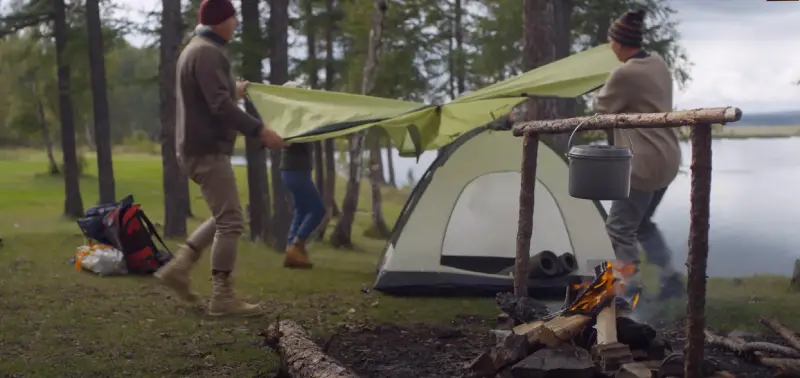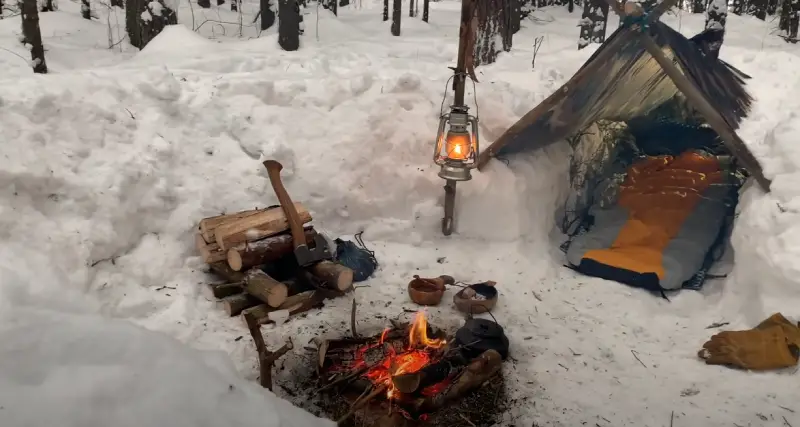How To Tent Camp Without Electricity: 9 Tips [Easy DIY]
Camping without electricity was an enriching experience that allowed me to connect with nature uniquely. Without the distractions of television, laptops, and cell phones, I could fully immerse myself in the great outdoors with only my camping equipment and surroundings. Camping without electricity was also daunting, especially when I was new to camping. It was a challenge but also a grand adventure.
When I went tent camping without electricity, I packed essentials like a battery-powered lantern for light, a portable charger for my devices, and a cooler for food storage. I used a propane stove for cooking and brought sleeping bags for warmth. I always planned activities that didn’t require electricity, like hiking or stargazing.
This blog post will share my experience and tips for tent camping without electricity.
How To Tent Camp Without Electricity: 13 Tips
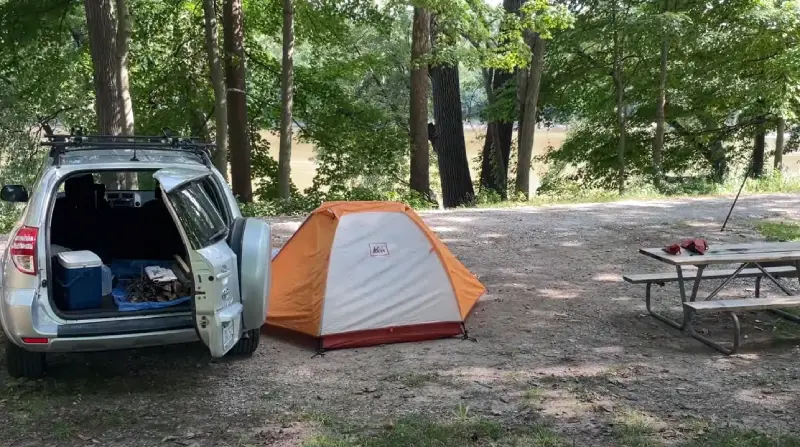
Camping without electricity seemed daunting, but with some preparation and planning, it was an enjoyable and rewarding experience. Here are some tips and tricks that helped me make the most of my tent camping:
Lighting My Campsite
- I used a head torch to illuminate my surroundings, making it easy to set up my tent and navigate my way to the bathroom at night.
- I used battery or solar-powered lights inside and outside my tent to provide additional lighting.
Cooking at My Campsite
- I found a gas stove, a great cooking and boiling water option.
- If the campsite allowed, I cooked over a campfire, an exciting and adventurous way to prepare meals. I planned my meals to ensure I had all the ingredients and cooking tools.
Keeping My Food Fresh
- I used a cool box to keep food fresh for several days. I froze meals beforehand to keep the box cold and used ice packs for additional cooling.
- I used UHT milk, which doesn’t require refrigeration and can still be used in cooking and hot beverages. I planned meals that didn’t require refrigeration or used communal fridges and freezers if available.
Charging My Devices
- I found a power bank, especially a solar-powered one, to be a valuable tool for charging my devices. I remembered to set it before leaving home.
- I also used car chargers to charge my devices when I planned on driving while camping.
Staying Warm and Cozy
- I layered my clothes, which was an effective way to stay warm while camping.
- I used hot water bottles in my sleeping bag or quilt for warmth.
- I placed a foil insulation roll under my sleeping area, which helped keep me warm by reflecting my body heat back to me.
Packing for Comfort
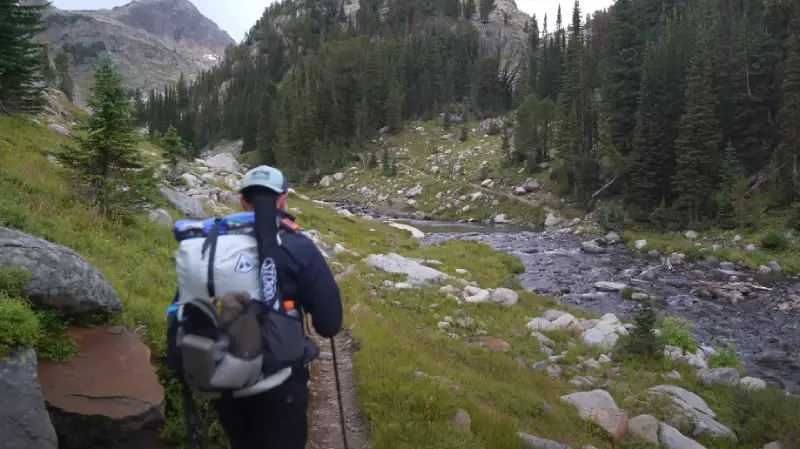
- I used vacuum bags to pack bulky items like pillows and quilts. I squeezed the air out of them manually or used a manual pump to save space in my luggage.
- I found air beds or self-inflating mattresses to provide a comfortable sleeping surface. I didn’t forget to bring a manual pump to inflate them.
Bringing a Good Quality Esky
- I brought a good quality Esky, essential for keeping my food and drinks fresh during my camping trip.
- I looked for a well-insulated, sturdy one to keep ice for extended periods.
Buying a Reliable Portable Battery
- I bought a reliable portable battery for keeping my electronic devices charged.
- I researched and purchased a battery with enough capacity for my camping trip.
Packing Warm Clothes
- Even though I went camping during the summer, I packed warm clothes for the chilly nights.
- Layers were vital when camping as they allowed me to adjust my clothing as the temperature changed throughout the day.
Bringing Books and Board Games
- Without electricity, it was essential to have alternative entertainment options.
- I brought some books and board games to entertain myself and my fellow campers during downtime.
Power Bank Full to Charge My Devices
- A power bank was a great option to charge my electronic devices.
- I kept one fully charged and was mindful of my usage to conserve battery life.
Natural Airflow to Reduce Fan Use
- Instead of relying on a fan for airflow, I chose a campsite with a natural breeze and set up my tent accordingly.
- I opened windows and did not fully cover my tent for maximum ventilation.
Jerry Can Full
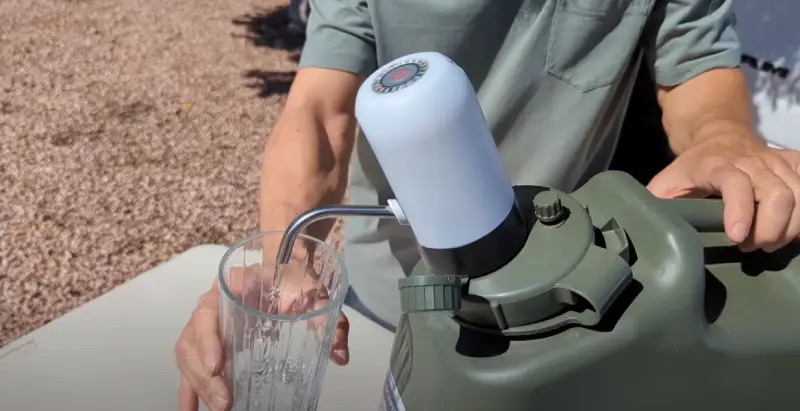
- When camping without access to electricity, it was essential to be prepared for any situation.
- I kept a whole jerry can of water on hand for drinking, cooking, and washing.
Conclusion
Camping without electricity was a rewarding and fulfilling experience for me. It allowed me to disconnect from the stresses of everyday life and truly immerse myself in nature. These tips and tricks let me enjoy a comfortable and safe camping trip without electricity.
I remembered to plan and bring plenty of essentials, such as light sources, non-perishable food, and warm clothing. With some preparation, I was ready to explore the great outdoors and make memories that would last a lifetime. It was indeed a happy camping experience for me.
FAQs
How Can I Camp Without a Generator?
You can use solar power instead of generators and propane tanks. It’s quiet and environmentally friendly. Get solar panels for your roof, a portable power station, or a solar suitcase.
